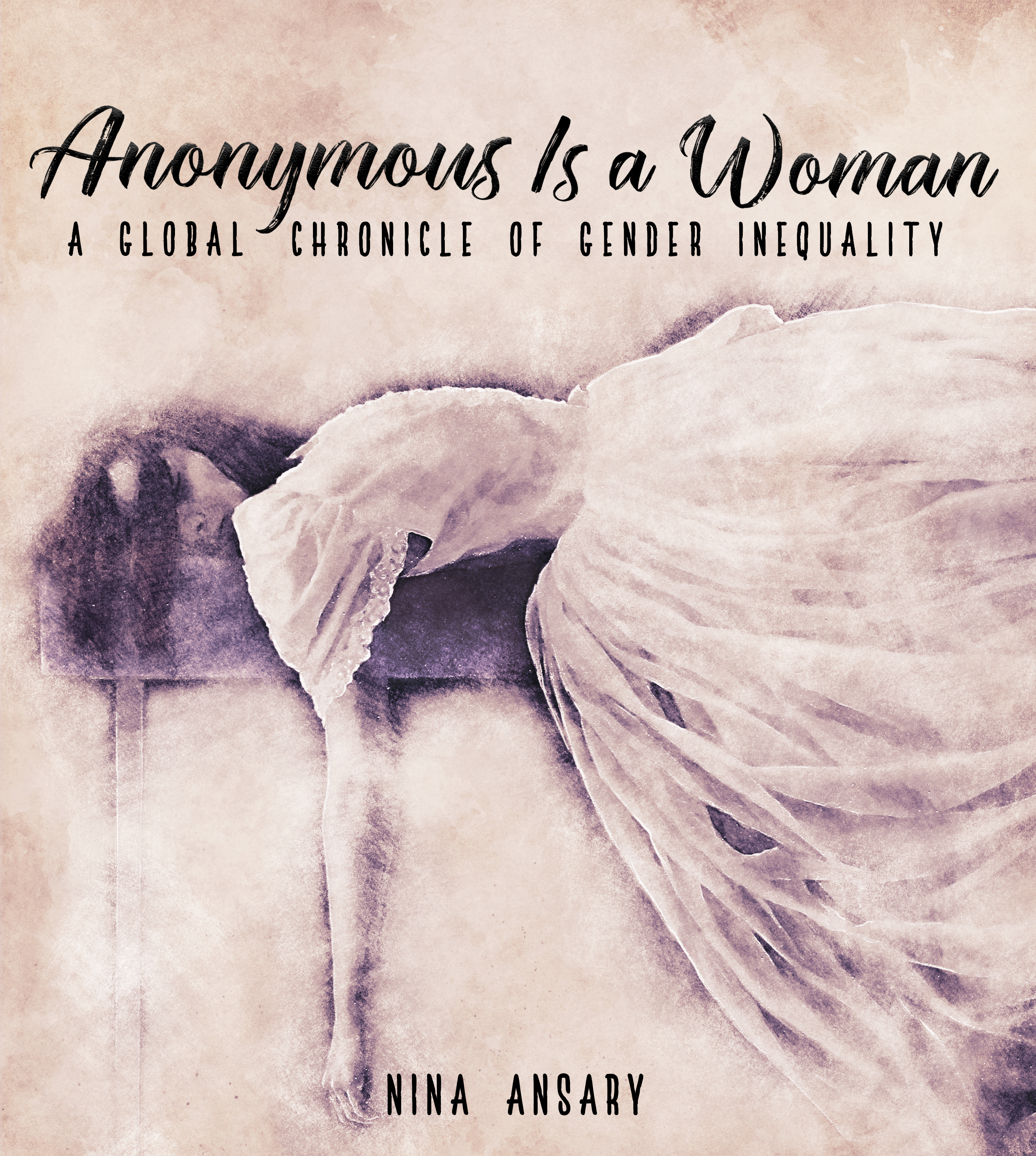In 1929, British novelist Virginia Woolf ran her fingers along the spines of the books in her library wondering why no woman in Shakespeare’s era had written “a word of that extraordinary literature when every other man, it seemed, was capable of song or sonnet.” She concluded, “Indeed, I would venture to guess that Anon, who wrote so many poems without signing them, was often a woman.”
Nearly a century after Woolf penned those incisive words, frequently modified as “For most of history, Anonymous was a woman,” the phenomenon of female anonymity persists as women worldwide continue to be restricted by society’s formal and unspoken barriers.
Throughout history women have had to contend with overwhelming obstacles preventing them from realizing their full potential. Although there has been incremental progress and advancement, women still have a long road to travel before they are equally represented within the global community.
Anonymous Is a Woman takes readers on a 4,000-year historic journey to expose the roots and manifestations of global female anonymity and the myriad ways institutionalized gender discrimination continues to permeate nearly every aspect of modern life. A primary component of the book entails dismantling historical bias to reveal a formidable array of women who achieved distinction despite a tradition of oppression.
Distinguished by their innovative spirit and creative brilliance, all of these women were born before 1900 — from 2300 BCE to 1892 — when opportunities for women were even more limited than they are today. They represent a mere fraction of those deserving acclaim in every sector of achievement yet have been relegated to the back pages of history. One of these women is Oliva Sabuco.
OLIVA SABUCO
1562-1622, SPANISH
PHILOSOPHER AND ORIGINATOR OF MIND-BODY DUALISM
We don’t generally associate holistic health or the mind-body connection with the sixteenth century. But with the publication in 1587 of her treatise Nueva filosofia de la naturaleza del hombre (New Philosophy of Human Nature), Spanish philosopher Oliva Sabuco predated Descartes’s mind-body dualism by fifty years and the popular mind-body connection philosophy of the late twentieth century by 400.
One of the first to espouse the concept of natural interaction between mind and body, Sabuco challenged the medical orthodoxy “by arguing for recognition of the symbiotic relationship between physical health and emotional well-being.”
Her landmark work is comprised of seven separately titled treatises:
• Knowledge of One’s Self
• Composition of the World as It Is
• Things That Will Improve This World and Its Nations
• Treatments and Remedies of Proper Medicine
• Proper Medicine Derived from Human Nature
• Brief Exposition on Human Nature: The Foundations of the Art of Medicine
• Proper Philosophy of the Nature of Composite Things, of Humans, and of the World, Unknown to the Ancients.
Having witnessed the failure of medicine to find a cure for the plague, Sabuco wanted to improve medical practice by focusing on the “power of the mind over the body in relation to disease.” Through her groundbreaking book, she sought to “promote health and prevent disease by expanding knowledge of the interrelationship between mind and body; the ultimate goal was to understand the function and form of the body in order to promote internal harmony and, thus, health.”
An academic and philosopher with a practical goal, Oliva Sabuco was influenced by “classical traditions in moral and natural philosophy, medicine, and cosmography… yet she ‘synthesizes these traditions, disagrees with fundamental aspects of them, and carries them forward in a holistic philosophy of human nature that is part of a larger view of the cosmos and humans’ place in it.”’
First among modern philosophers to argue that the brain, not the heart, controls the body, her work also “anticipates the role of cerebrospinal fluid, the relationship between mental and physical health, and the absorption of nutrients through digestion.”
The interdisciplinary journal Feminist Review praised Sabuco’s work as being “one of the pioneering volumes in psychosomatic medicine,” also noting that, although Sabuco was one of the first philosophers to identify the mind-body connection, “because she was a woman in an era [when] males were the only ones with any real social value, her work was promptly dismissed.”
Sadly, the publication history of Sabuco’s treatise backs up this widely held view. Initially, Sabuco’s father, Miguel — a pharmacist — claimed that he had written her treatise. It wasn’t until the twentieth century that the treatise’s authorship was debated again, and now it is once more accepted as Sabuco’s work.

Follow us here and subscribe here for all the latest news on how you can keep Thriving.
Stay up to date or catch-up on all our podcasts with Arianna Huffington here.


